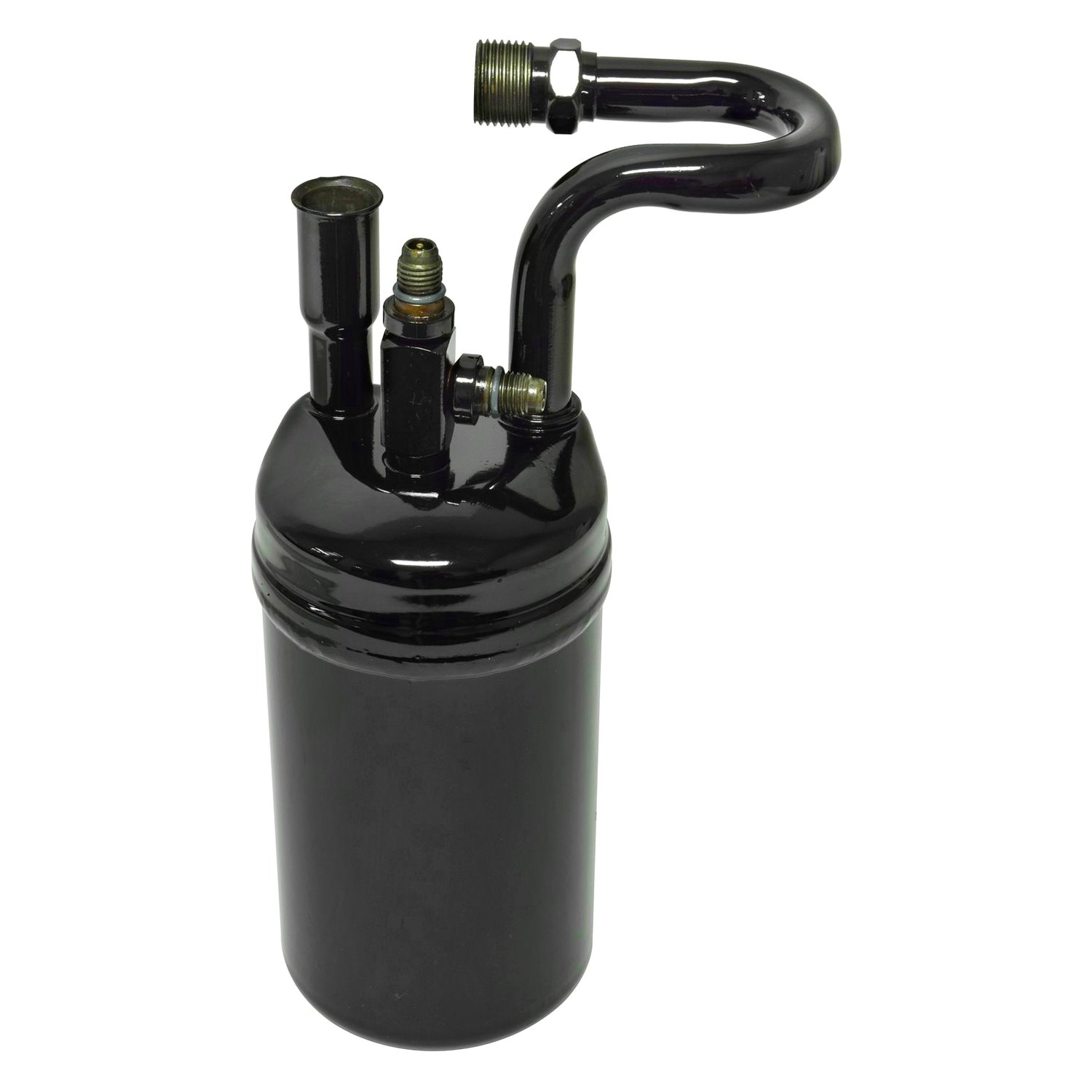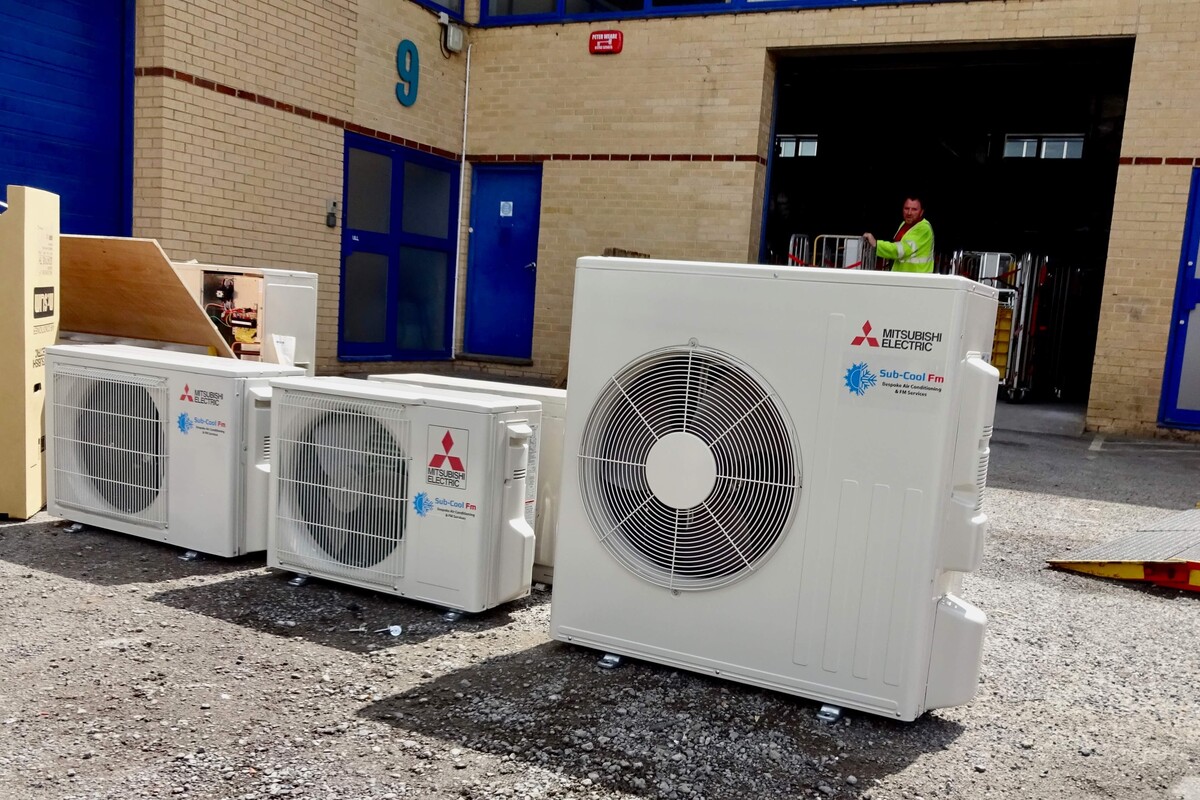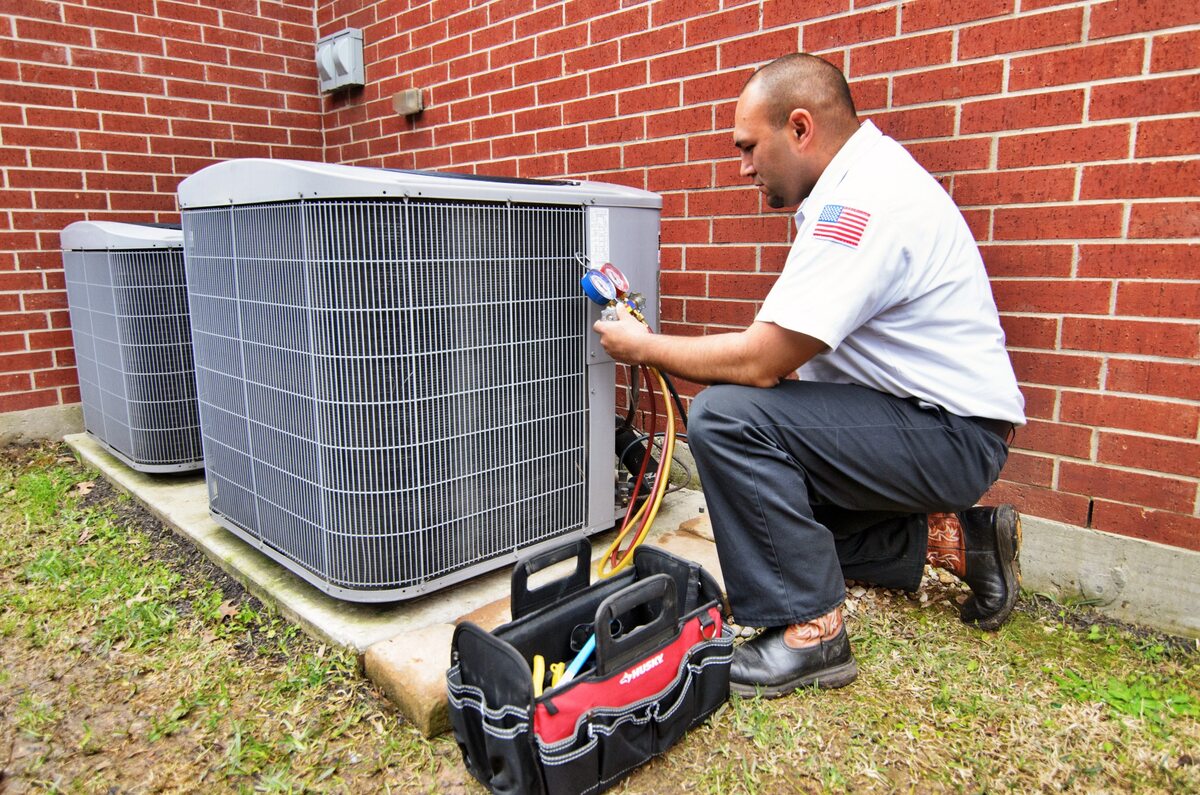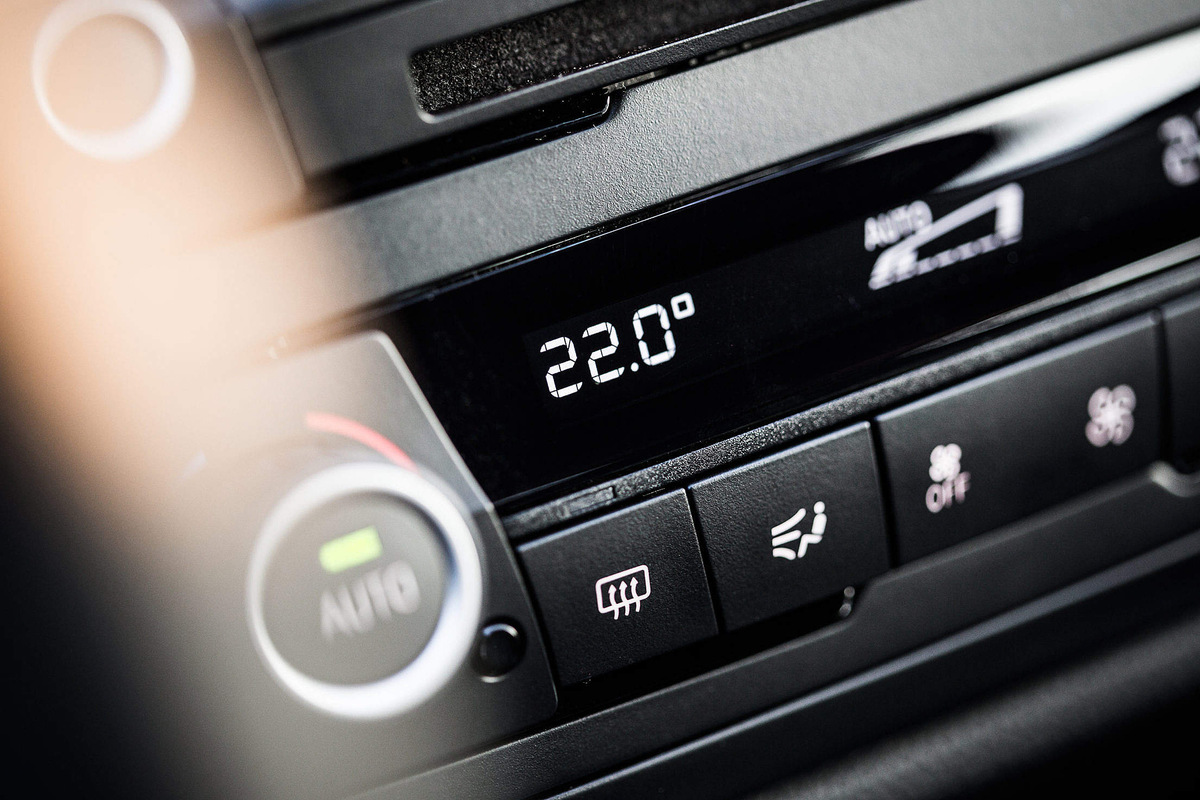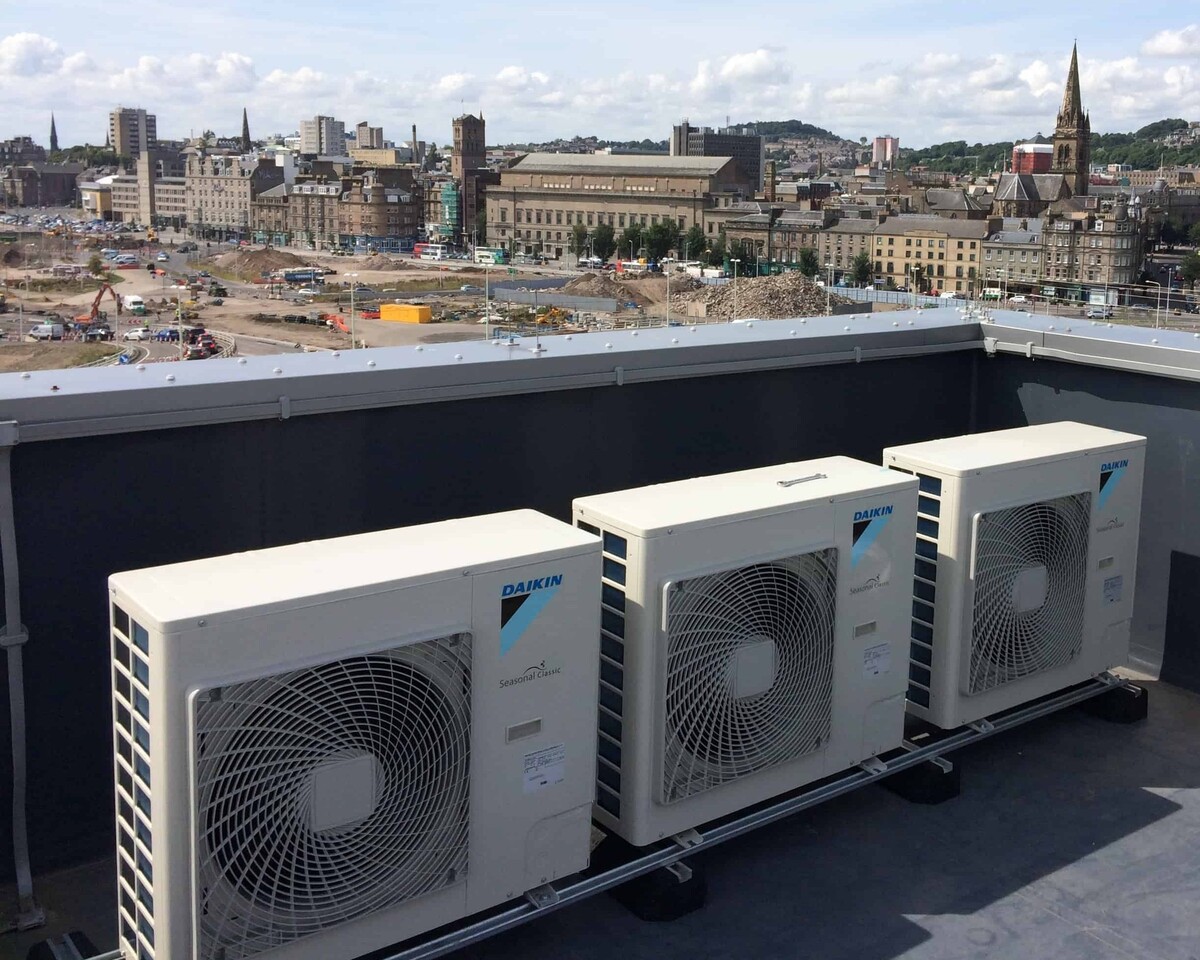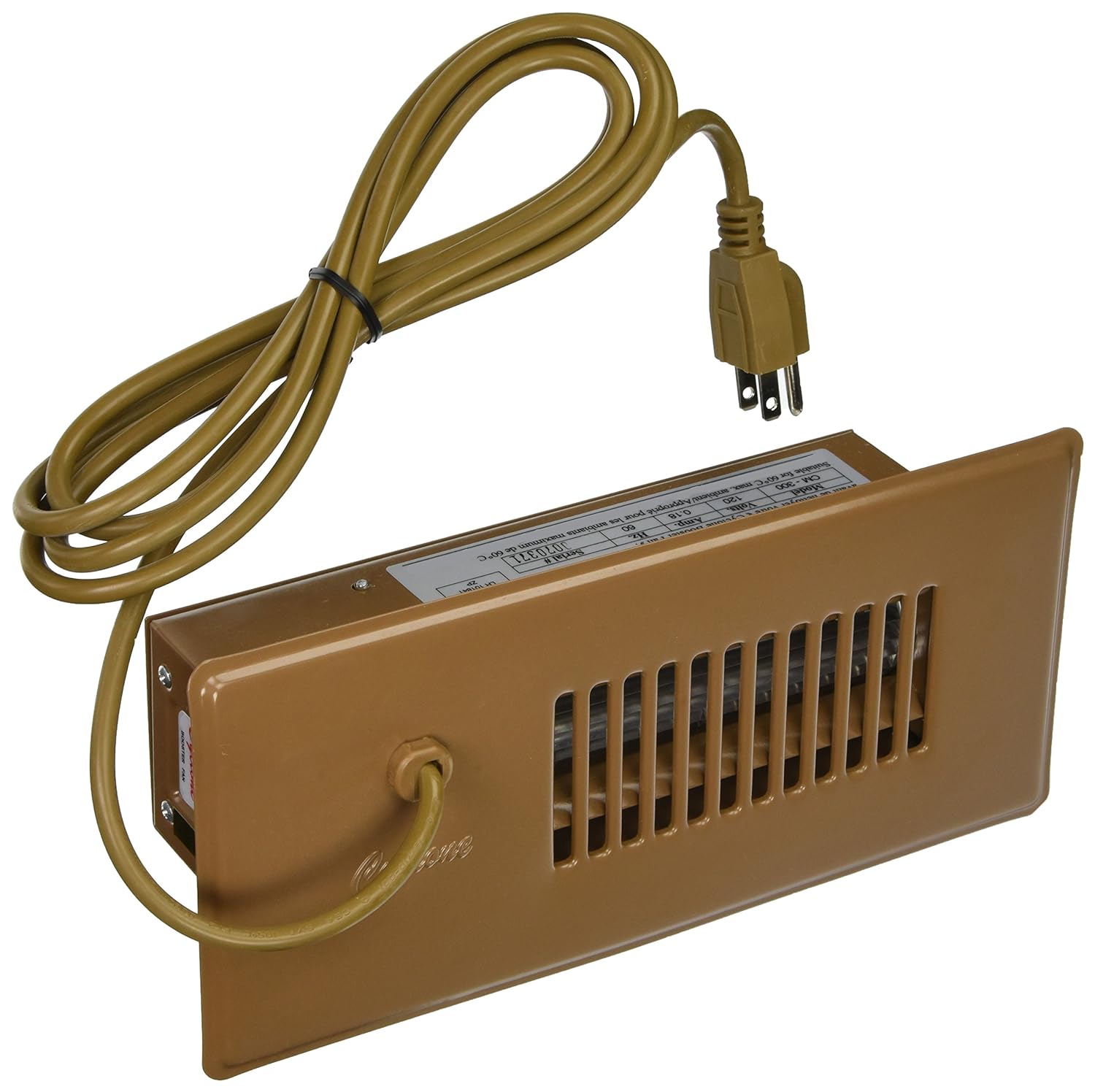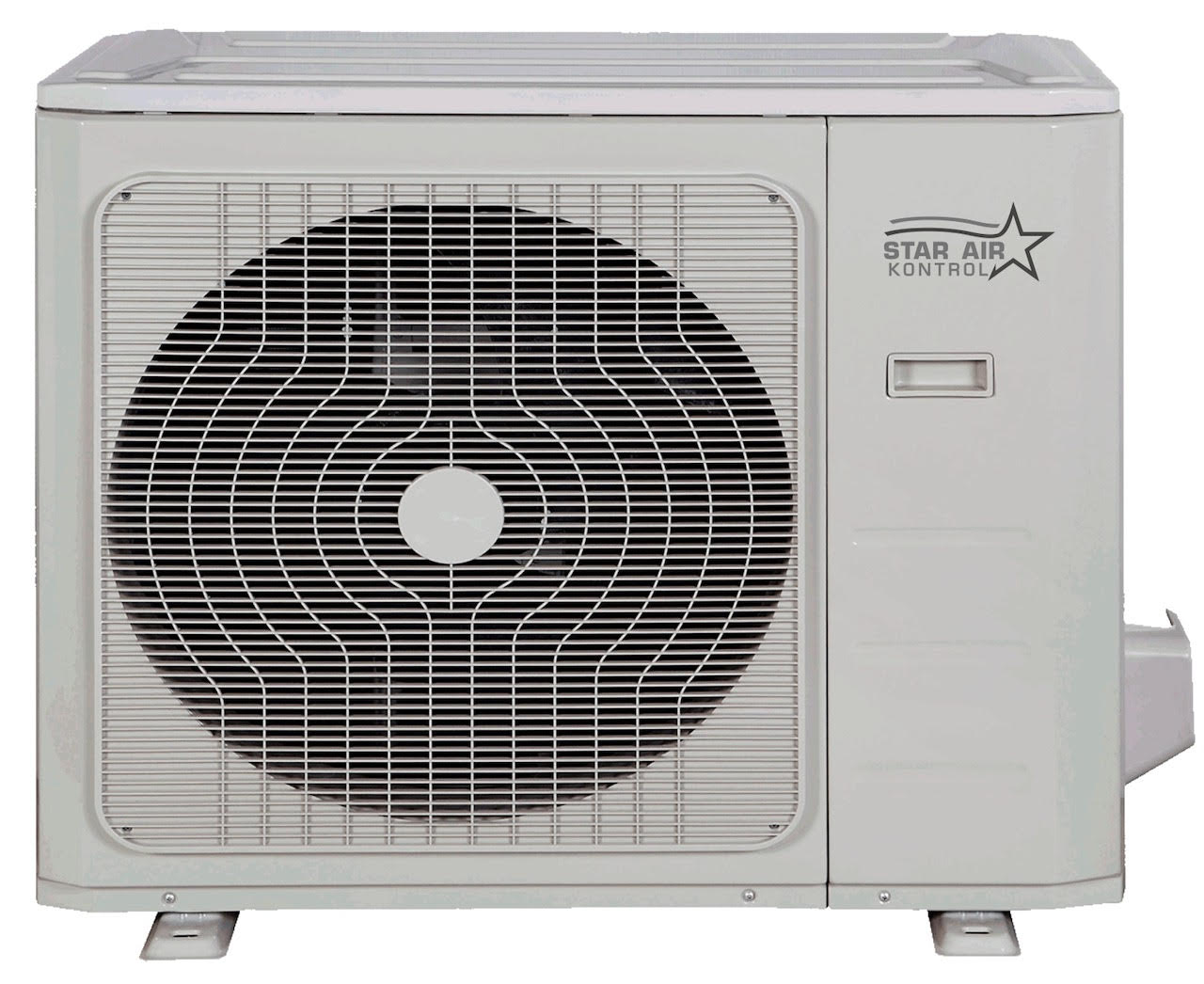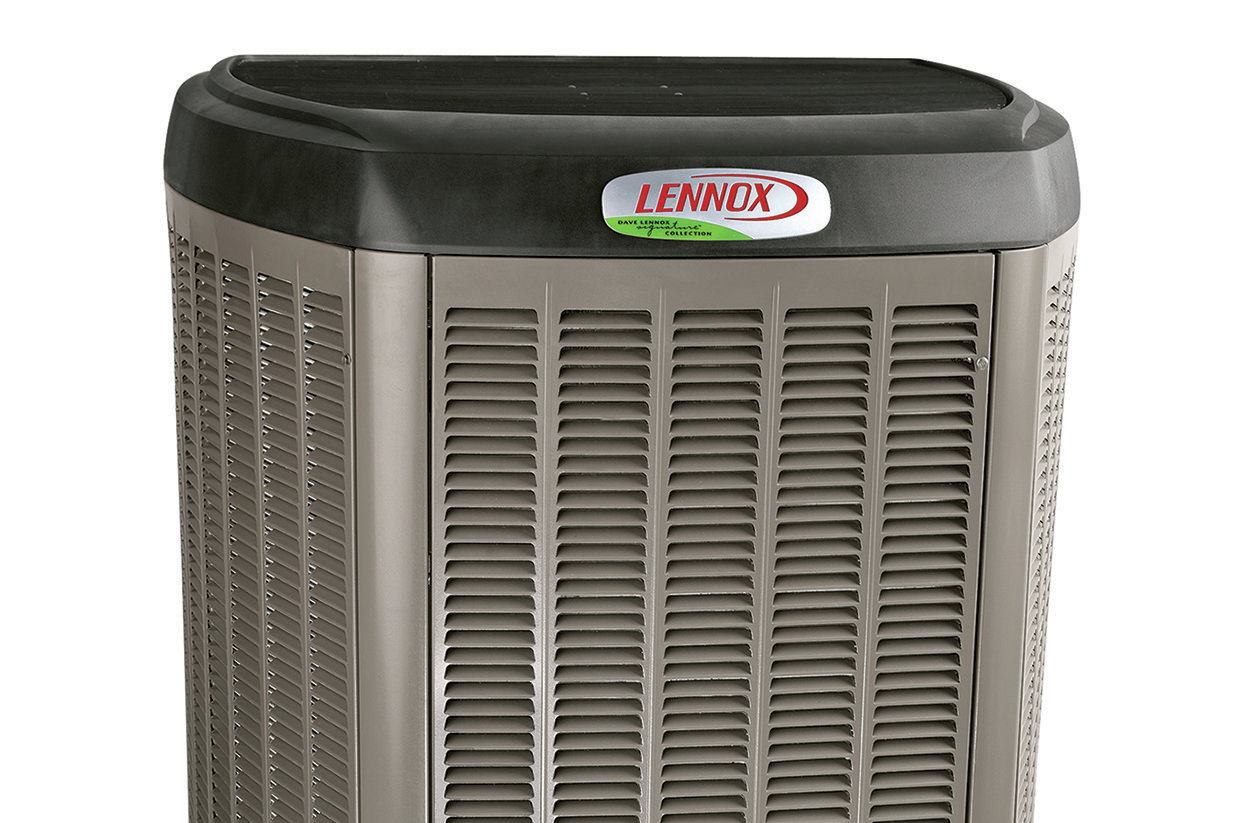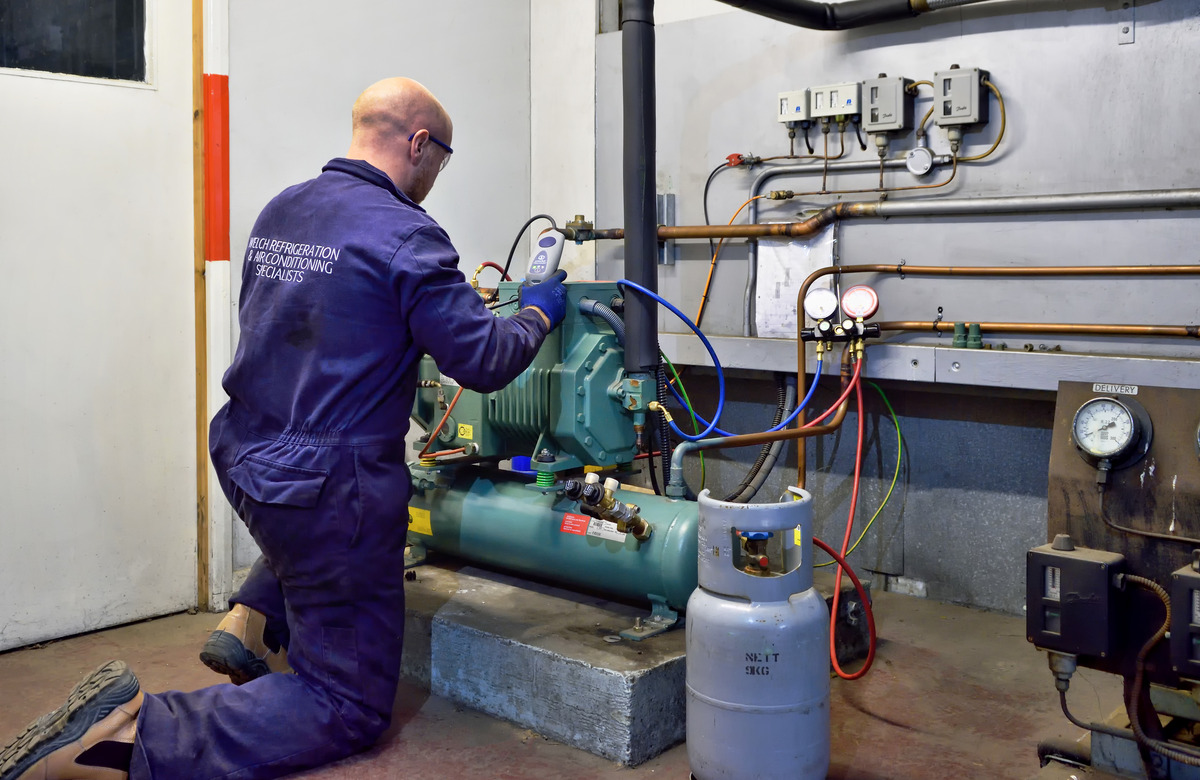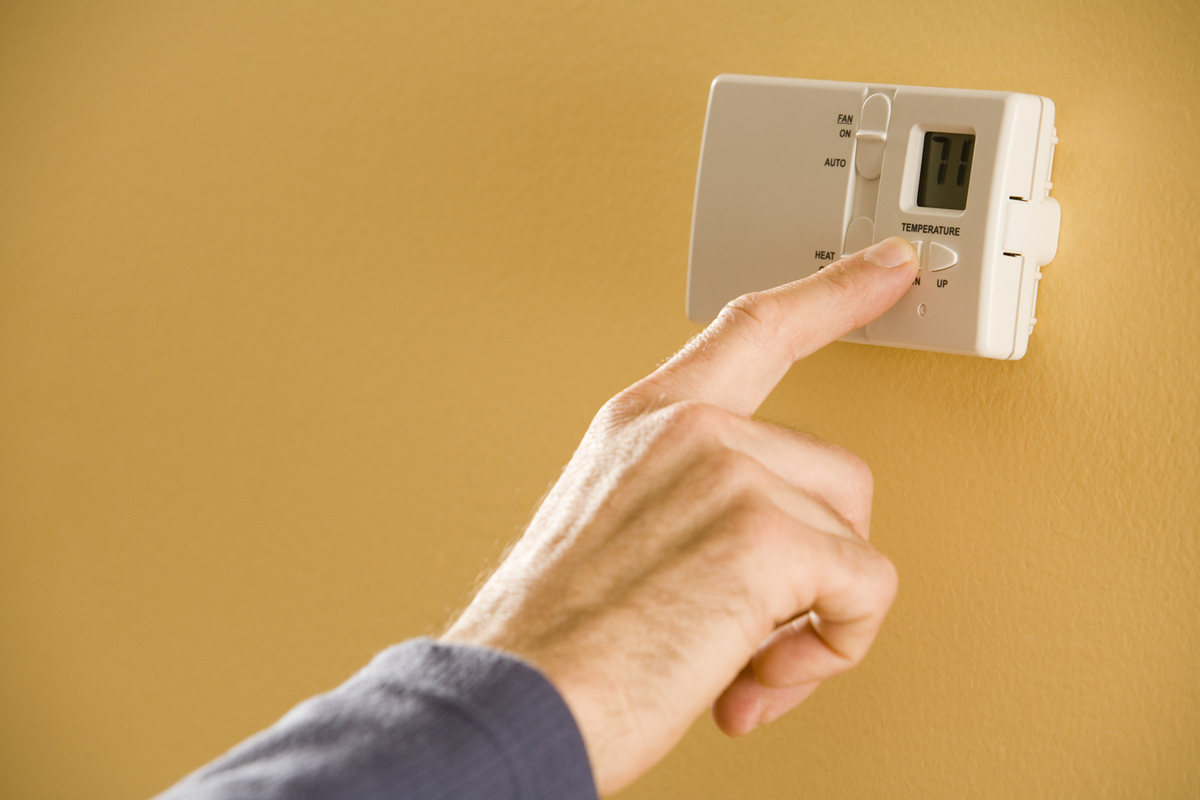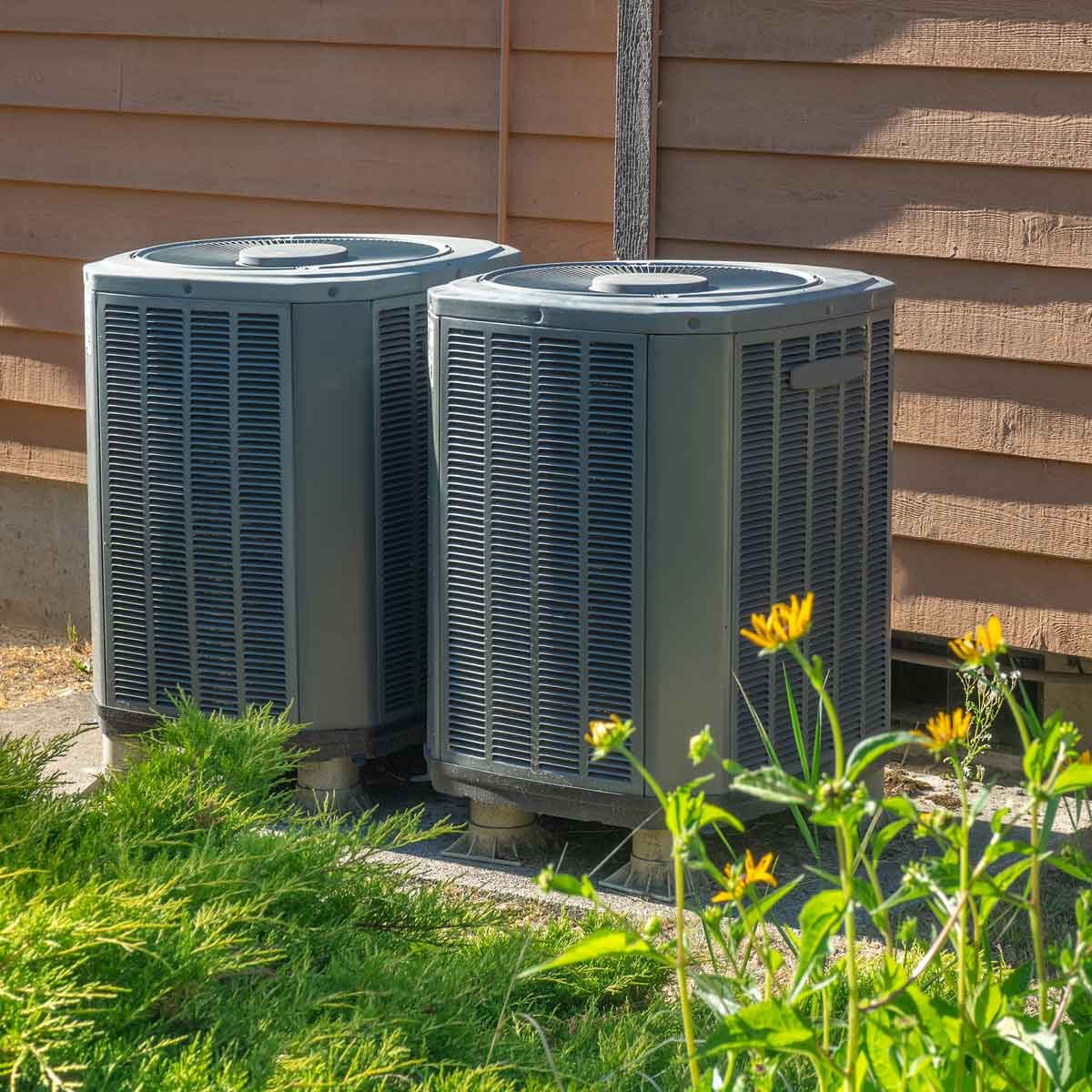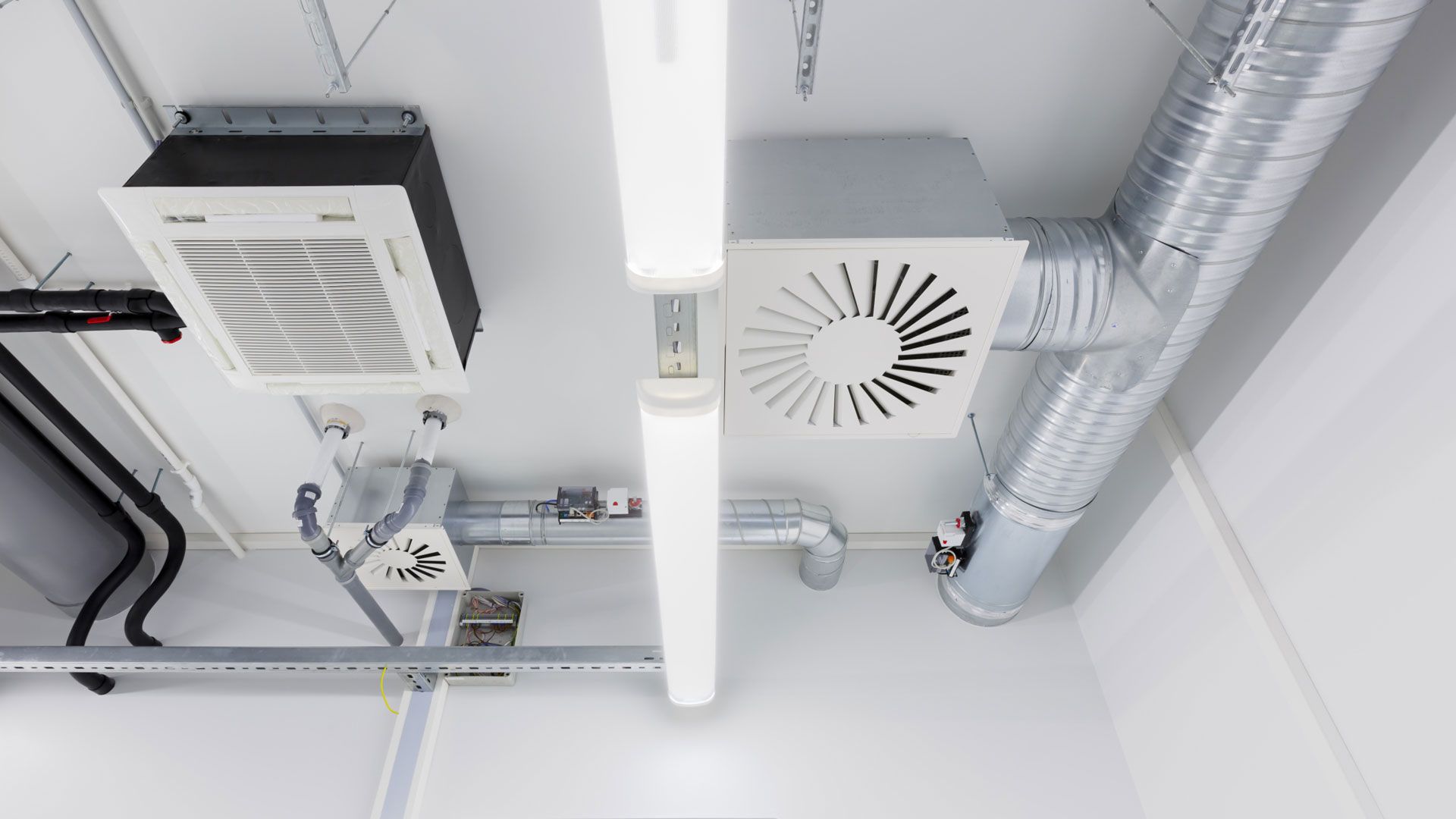Home>Home Maintenance>What Is A Condenser In An Air Conditioning System
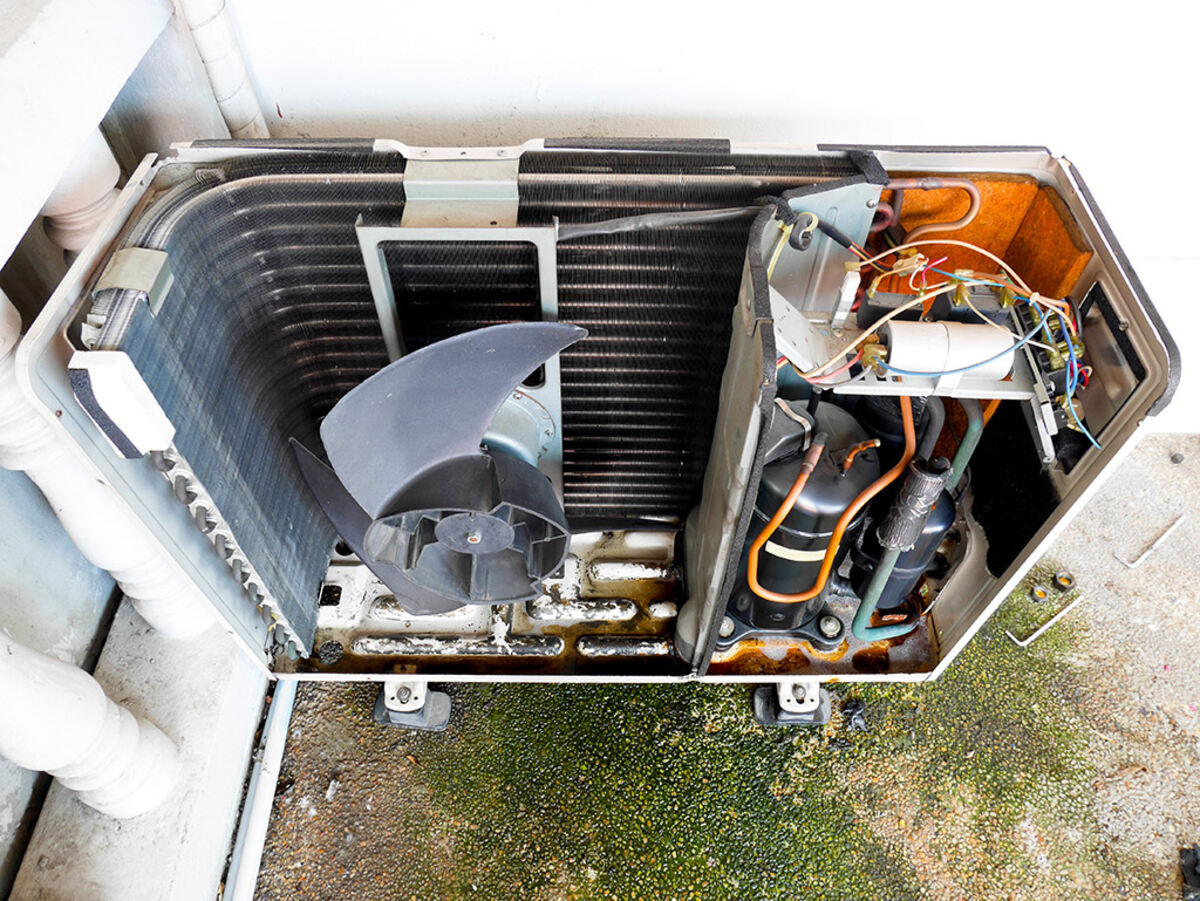

Home Maintenance
What Is A Condenser In An Air Conditioning System
Modified: March 6, 2024
Learn about the importance of a condenser in your air conditioning system for efficient cooling. Get expert tips on home maintenance from our team.
(Many of the links in this article redirect to a specific reviewed product. Your purchase of these products through affiliate links helps to generate commission for Storables.com, at no extra cost. Learn more)
Introduction
Welcome to the world of home maintenance, where taking care of your property becomes an essential part of preserving its value and ensuring your comfort. One crucial aspect of home maintenance is the proper functioning of your air conditioning system. Within this system, you’ll find a component known as the condenser, which plays a vital role in keeping your home cool during those hot summer months.
Understanding what a condenser is and how it works is the first step towards taking care of this important element in your air conditioning system. In this article, we will delve into the world of condensers and explore their function, components, types, and maintenance tips. So, let’s dive in and discover the inner workings of this essential part of your home cooling system.
Key Takeaways:
- The condenser in an air conditioning system converts hot air into cool liquid, essential for keeping your home comfortable during summer.
- Regular maintenance, such as cleaning coils and checking electrical connections, is crucial for the condenser’s efficiency and longevity.
Read more: What Is A Condenser In HVAC
Definition of a Condenser
A condenser is a critical component of an air conditioning system that helps convert refrigerant gas into a liquid state. It is responsible for releasing heat absorbed from the indoor air to the outdoor environment, allowing for the cooling cycle to continue efficiently.
The condenser can be thought of as a heat exchanger. It receives high-pressure, high-temperature refrigerant vapor from the compressor and processes it through a series of tubes and fins. As the hot refrigerant vapor flows through these tubes, the surrounding air helps dissipate the heat, causing the refrigerant to condense into a high-pressure liquid state.
This liquid refrigerant is subsequently sent back to the indoor unit of the air conditioner, where it enters the expansion valve or metering device. Here, it undergoes a pressure drop, cooling down as it moves through the evaporator coil and absorbs heat from the indoor air.
Without a properly functioning condenser, the heat transfer process necessary for effective cooling cannot occur, leading to reduced efficiency and compromised comfort levels in your home.
Function of the Condenser
The main function of the condenser in an air conditioning system is to release heat from the refrigerant and convert it from a high-pressure gas to a high-pressure liquid. This heat exchange process is crucial for the overall cooling efficiency of the system.
When the refrigerant enters the condenser, it is in a high-pressure, high-temperature vapor state. As the hot refrigerant flows through the condenser coils, the ambient air blown across the coils helps to remove the heat from the refrigerant, causing it to condense into a liquid form.
By removing the heat from the refrigerant, the condenser ensures that the refrigerant is in the optimal state to absorb heat from the indoor air in the evaporator coils. This heat absorption allows the system to cool down the indoor air and maintain a comfortable temperature inside your home.
In addition to heat exchange, the condenser also plays a role in maintaining the pressure levels of the refrigerant. After the refrigerant has been condensed into a liquid, it moves to the expansion valve or metering device, where its pressure is reduced. This pressure reduction prepares the refrigerant for the next stage of the cooling cycle.
Overall, the function of the condenser is integral to the cooling process in an air conditioning system. It is responsible for releasing heat captured from the indoor air into the outdoor environment, ensuring efficient operation and optimal cooling performance.
Components of a Condenser
A condenser in an air conditioning system consists of several key components that work together to facilitate the heat exchange process. Understanding these components is essential for maintaining and troubleshooting your condenser effectively. Let’s explore the main components of a condenser:
- Coils: The condenser coils are the central component of the condenser. These coils are typically made of copper or aluminum tubes surrounded by aluminum fins. The high-pressure refrigerant flows through these coils, allowing for heat exchange with the surrounding air.
- Condenser Fan: The condenser fan is responsible for blowing air across the condenser coils. This airflow enhances the heat transfer process, helping to cool down the refrigerant and expel the hot air from the system.
- Compressor: The compressor is another essential component of the condenser. It is responsible for pressurizing the refrigerant and circulating it through the condenser coils. The compressor plays a crucial role in maintaining the flow and pressure of the refrigerant throughout the system.
- Condenser Fan Motor: This motor powers the condenser fan, which generates the airflow necessary for heat dissipation. It ensures that the condenser operates efficiently and effectively in removing heat from the refrigerant.
- Condenser Coil Fins: The condenser coil fins increase the surface area of the coils, allowing for better heat transfer. They help to maximize the contact between the refrigerant and the surrounding air, enhancing the cooling process.
- Condenser Cabinet: The condenser cabinet houses all the components of the condenser and protects them from external elements. It is typically made of metal or durable plastic and is designed to withstand outdoor conditions.
- Electrical Components: Various electrical components, such as capacitors, contactors, and control boards, are integrated into the condenser to facilitate the proper functioning of the unit.
These components work in harmony to ensure efficient heat exchange and optimal cooling performance in your air conditioning system. Regular maintenance and inspection of these components can help extend the lifespan of your condenser and prevent potential issues.
Types of Condensers
Condensers in air conditioning systems come in different types, each with its own advantages and applications. Understanding the various types can help you determine the most suitable condenser for your specific cooling needs. Here are the main types of condensers:
- Air-Cooled Condensers: Air-cooled condensers are the most common type used in residential and commercial air conditioning systems. These condensers use ambient air to cool the refrigerant by blowing it across the condenser coils. They are relatively easy to install and are more cost-effective compared to other types.
- Water-Cooled Condensers: Water-cooled condensers use water as a medium for heat exchange. Instead of relying on ambient air, these condensers circulate water through the condenser coils to remove heat from the refrigerant. They are commonly used in large-scale commercial and industrial applications and require a separate water source and cooling tower.
- Evaporative Condensers: Evaporative condensers combine the principles of air-cooled and water-cooled condensers. These units have a cooling tower and use a combination of water and air to remove heat from the refrigerant. They are suitable for regions with high ambient temperatures and can provide significant energy savings.
- Remote Condensers: Remote condensers are typically used in split air conditioning systems, where the condenser unit is installed separately from the indoor unit. This type of condenser allows for more flexibility in installation and can be ideal for situations where space is limited or when noise reduction is a priority.
- Heat Pump Condensers: Heat pump condensers are designed to provide both cooling and heating capabilities. These units can reverse the heat exchange process, allowing them to extract heat from the outdoor air and transfer it indoors during colder months. Heat pump condensers are energy-efficient and can help reduce heating costs.
When selecting a condenser for your air conditioning system, consider factors such as efficiency, cooling capacity, installation requirements, and environmental conditions. Consulting with an HVAC professional can help you determine the most suitable type of condenser for your specific needs.
Read more: What Is An Air Conditioner Condenser
How a Condenser Works in an Air Conditioning System
The condenser is a key component in the refrigeration cycle of an air conditioning system. It plays a vital role in converting the high-pressure, high-temperature refrigerant vapor into a high-pressure liquid, preparing it for the next stage of the cooling process. Let’s take a closer look at how a condenser works:
- Refrigerant Compression: The cooling process begins with the compressor, which pressurizes the refrigerant vapor, raising its temperature and pressure. The hot, high-pressure refrigerant leaves the compressor and enters the condenser.
- Heat Dissipation: As the refrigerant enters the condenser, it flows through a series of coils. The condenser fan blows air across these coils, facilitating the transfer of heat from the refrigerant to the surrounding air. This heat exchange causes the refrigerant to condense into a high-pressure liquid.
- Pressure Reduction: Once the refrigerant has been condensed, it travels to the expansion valve or metering device, where it undergoes a pressure drop. This pressure reduction prepares the refrigerant for the next stage of the cooling cycle.
- Evaporator Coil Entry: After leaving the expansion valve, the high-pressure liquid refrigerant enters the evaporator coil located in the indoor unit of the air conditioner. Here, the refrigerant absorbs heat from the indoor air, causing it to evaporate into a low-pressure vapor state.
- Return to the Compressor: The low-pressure vapor refrigerant is then returned to the compressor where the whole cycle starts again. The compressor pressurizes the vapor, raising its temperature and repeating the entire process of heat exchange in the condenser.
By transferring heat from the refrigerant to the outdoor air, the condenser plays a crucial role in cooling your home. It ensures that the refrigerant is in the optimal state to absorb heat from the indoor air in the evaporator coil, allowing for effective cooling. Without a properly functioning condenser, the cooling process would be compromised, leading to reduced efficiency and less comfortable indoor temperatures.
Regular maintenance of the condenser in your air conditioning system, such as cleaning the coils and checking for any damage, can help improve the efficiency and lifespan of your unit.
Importance of a Condenser in an Air Conditioning System
The condenser is a vital component in an air conditioning system, and its proper functioning is crucial for optimal cooling performance and energy efficiency. Here are some key reasons why the condenser is important:
- Heat Dissipation: The primary function of the condenser is to release the heat absorbed from the indoor air to the outdoor environment. By dissipating this heat, the condenser enables the refrigerant to cool down and prepare for the next cycle of heat absorption. Without a functioning condenser, heat transfer would be impaired, reducing the system’s cooling capacity.
- Efficient Cooling: A properly working condenser ensures efficient cooling by maintaining the refrigerant at the correct pressure and temperature levels. This allows the refrigerant to effectively absorb heat from the indoor air, resulting in a comfortable and cool environment inside your home.
- Energy Efficiency: When the condenser is operating efficiently, it helps the entire air conditioning system run more energy efficiently. By effectively removing heat from the refrigerant, the condenser reduces the workload on other components, such as the compressor. This, in turn, leads to lower energy consumption and reduced utility costs.
- Longevity of the System: Regular maintenance of the condenser is essential for the longevity of your air conditioning system. The condenser, along with other components, requires proper care and cleaning to prevent dirt, debris, and other contaminants from accumulating. Neglecting maintenance can lead to decreased performance, increased wear and tear, and potentially costly repairs or premature system failure.
- Comfort and Indoor Air Quality: A well-functioning condenser ensures effective cooling, which contributes to a comfortable indoor environment during hot weather. Additionally, proper heat exchange in the condenser can help remove moisture from the air, improving indoor air quality by reducing excess humidity that can lead to mold and mildew growth.
Overall, the condenser plays a critical role in the cooling process of an air conditioning system. From heat dissipation to energy efficiency, it is vital for maintaining a comfortable and cool home environment. Regular maintenance and proper care of the condenser are essential to ensure its optimal performance and prolong the lifespan of your air conditioning system.
Maintenance and Troubleshooting of the Condenser
Maintaining and troubleshooting the condenser is crucial for maintaining the efficiency and longevity of your air conditioning system. Here are some essential maintenance tasks and troubleshooting tips to help keep your condenser in optimal working condition:
Maintenance:
- Regular Cleaning: Clean the condenser coils and fins periodically to remove dirt, debris, and dust. This can be done using a soft brush or a gentle stream of water. Avoid using high-pressure water as it can damage the fins. Additionally, keep the area surrounding the condenser clear of any obstructions.
- Inspect and Replace Air Filters: Check and replace the air filters regularly to ensure proper airflow to the condenser. Dirty air filters can restrict airflow, leading to reduced performance of the condenser and the overall system.
- Check the Condenser Fan: Inspect the condenser fan to ensure it is clean and functioning properly. If the fan blades are dirty or damaged, clean them or replace them if necessary. Additionally, ensure that the fan motor is properly lubricated according to the manufacturer’s guidelines.
- Inspect Electrical Connections: Regularly inspect the electrical connections of the condenser to ensure they are clean, secure, and free from any corrosion. Loose or damaged electrical connections can affect the functioning of the condenser.
- Schedule Professional Maintenance: It is advisable to have a professional HVAC technician perform annual maintenance on your air conditioning system, including a thorough inspection and cleaning of the condenser. They can also check refrigerant levels, inspect components, and identify any potential issues before they become major problems.
Read more: How To Flush Air Conditioning System
Troubleshooting:
If you encounter issues with the condenser, here are some troubleshooting tips:
- No Power: Check if the condenser is receiving power by ensuring that the circuit breaker is not tripped. If the breaker keeps tripping, there may be an electrical issue that requires professional attention.
- Lack of Cooling: If the condenser is running but not providing sufficient cooling, it could be due to dirty coils, low refrigerant levels, or a faulty compressor. Check and clean the coils, and if the issue persists, contact a professional technician to diagnose and address the problem.
- Strange Sounds or Vibrations: Unusual noises or vibrations coming from the condenser could indicate a problem with the fan motor, compressor, or other components. It is best to have a professional technician inspect and repair the issue to prevent further damage.
- Refrigerant Leaks: If you notice refrigerant leaks around the condenser, it is important to address them promptly. Low refrigerant levels can lead to reduced cooling efficiency and potential damage to the compressor. Contact a professional technician to locate and repair the leaks.
Remember, some condenser issues may require the expertise of a professional HVAC technician. If you are unsure or uncomfortable performing maintenance or troubleshooting tasks yourself, it is best to seek professional assistance to ensure the safety and proper functioning of your condenser and air conditioning system.
Conclusion
The condenser is a crucial component in an air conditioning system, responsible for releasing heat from the refrigerant and facilitating the cooling process. Understanding the definition, function, components, types, and maintenance of the condenser is essential for proper care and optimal performance of your air conditioning system.
By converting high-pressure vapor into a high-pressure liquid, the condenser enables the refrigerant to absorb heat from the indoor air, creating a comfortable and cool indoor environment. Regular maintenance, such as cleaning the coils, inspecting electrical connections, and scheduling professional maintenance, is vital for the condenser’s efficiency and longevity.
Troubleshooting common issues, such as power problems, lack of cooling, unusual sounds or vibrations, and refrigerant leaks, can help identify and address potential problems with the condenser. It is important to seek professional assistance if you are uncertain or uncomfortable with any maintenance or troubleshooting tasks to ensure the safe and proper functioning of your condenser.
Remember, the maintenance and care you give to your condenser will directly impact the efficiency and reliability of your air conditioning system. By taking the time to maintain and troubleshoot your condenser, you can enjoy optimal cooling performance, energy efficiency, and a comfortable living environment.
So, make sure to prioritize the maintenance and care of your condenser to keep your air conditioning system running smoothly, providing you with the cool comfort you desire during the hot summer months.
Frequently Asked Questions about What Is A Condenser In An Air Conditioning System
Was this page helpful?
At Storables.com, we guarantee accurate and reliable information. Our content, validated by Expert Board Contributors, is crafted following stringent Editorial Policies. We're committed to providing you with well-researched, expert-backed insights for all your informational needs.
